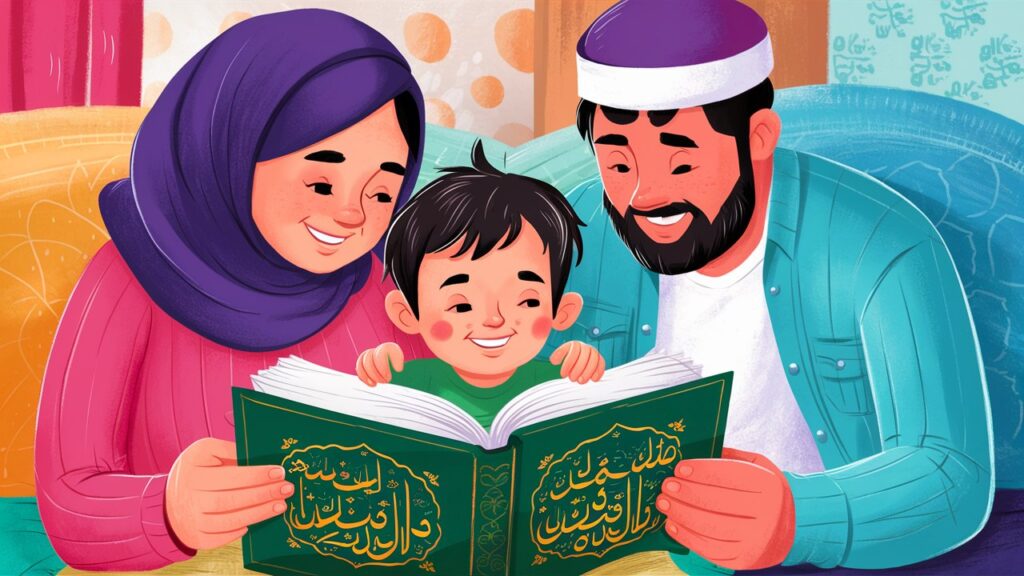
Raising Quran-Literate Children in the West: A Guide for Muslim Parents
Raising children in a Western society can present unique challenges for Muslim parents, especially when it comes to fostering a connection with the Quran. However, the rewards of raising Quran-literate children are immense. A strong foundation in faith, a connection to their Islamic heritage, and a sense of community are just a few of the lifelong benefits.
Making the Quran Accessible for Young Minds

Introducing young children to the Quran requires age-appropriate methods. Thankfully, there are many resources available to make this process engaging and enjoyable. Children’s Quran translations with colorful illustrations bring the verses to life, sparking curiosity and interest. Educational games and interactive apps transform learning about the Quran into a fun and interactive experience.
The Power of Storytelling: Captivating Young Hearts and Minds
Stories have a magical ability to capture children’s imaginations. By incorporating storytelling into your child’s Quranic education, you can create a lasting impact. Telling simplified and engaging stories from the Quran, like the captivating tales of Prophet Yusuf (Joseph) or Prophet Musa (Moses), allows them to connect with the Quran on a deeper level. Visual aids like picture books or short, age-appropriate animated videos can further enhance the storytelling experience.
Fostering a Love for Learning: Making Quran Fun and Rewarding
Learning about the Quran shouldn’t feel like a chore. Incorporate short daily recitations as a family routine, making it a part of your daily rhythm. Interactive activities like memorizing short Surahs (chapters) together or playing Quran-themed games can add a dose of fun. Remember, positive reinforcement goes a long way. Celebrate milestones in their Quranic learning journey, no matter how big or small.
Leading by Example: Setting the Stage for a Lifelong Connection

Children learn best by example. As parents, your own commitment to the Quran plays a crucial role in shaping your child’s relationship with it. Regularly reciting the Quran yourself demonstrates the importance you place on it. Creating a designated space for prayer and Quran reading within your home sets a positive and inspiring tone. Consider attending Quran classes or workshops with your children, making it a shared learning experience.
Community and Resources
The Muslim community can be a valuable resource in supporting your child’s Quranic education. Seek out local Quran classes or Islamic schools that align with your values. Many online resources like websites or YouTube channels cater specifically to teaching children about the Quran. Utilize these resources to supplement your child’s Quranic learning journey.
Conclusion: A Gift that Lasts a Lifetime
Raising Quran-literate children is a gift that keeps on giving. It equips them with a strong foundation in faith, connects them to their rich Islamic heritage, and fosters a sense of community. Remember, even small steps can make a big difference. Take the first step today and embark on this beautiful journey of nurturing your child’s connection with the Quran
